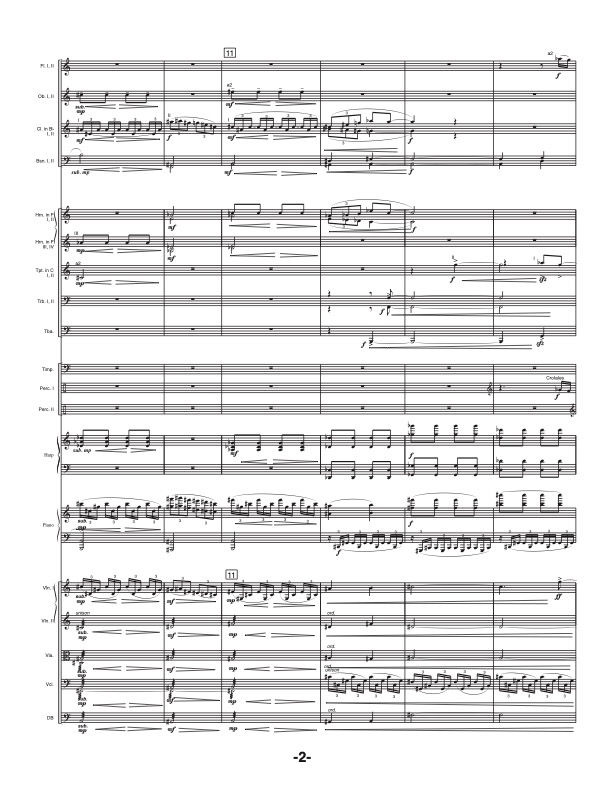Beyond All Walking




Instrumentation: 2,2,2,2; 4,2,2,1; timp; 3 perc; harp; piano; strings
Duration: 10 minutes
Published by: Theodore Presser Company
Beyond All Walking was my first orchestral work, composed while I was a second year masters student at Peabody Conservatory. I was studying with Robert Sirota, who will always remain one of my most influential teachers. The ideas for the piece began while I was still living in Houston, TX, after completing my degree from Rice University. After moving to Baltimore, before I began my studies at Peabody Conservatory, I improvised the ending string chorale late one night. So, when I approached Bob about wanting to compose an orchestral work, I felt I had a strong opening and an ending, but wasn't certain how to get from point A to point B. My teacher, Bob Sirota, suggested several things, one of which was to find a text to use as a reference. One of my favorite poets is Rainer Maria Rilke. In particular, I love the translations by Stephen Mitchell. So, I selected a poem by Rainer Maria Rilke (published in the book: AHEAD OF ALL PARTING, The Selected Poetry and Prose of Rainer Maria Rilke, Modern Library, 1995, Translated by Stephen Mitchell) entitled Going Blind.
Going Blind
She sat just like the others as the table.
But on second glance she seemed to hold her cup
a little differently as she picked it up.
She smiled once. It was almost painful.
And when they finished and it was time to stand
and slowly as chance selected them they left
and moved through many rooms (they talked and laughed)
I saw her. She was moving far behind
The others absorbed like someone who will soon
have to sing before a large assembly;
upon her eyes which were radiant with joy
light played as on the surface of a pool.
She followed slowly taking a long time
as though there were some obstacle in the way;
and yet: as though once it was overcome
she would be beyond all walking and would fly.
My grandmother had passed away a few years prior to my composing this work and I wanted to write something in response to her passing. I had remembered a class I visited at Rice prior to matriculating, and in this class, the professor was discussing the artwork of Michelangelo. Michelangelo was of the belief that the physical body acted as a prison to the human soul and that the soul was struggling for liberation from the constraints of the body. I loved this idea that the soul was eternally drawn to the heavens and I could suddenly see in many of his sculptures, that the soul is constantly yearning for freedom from the body. This idea along with the Rilke poem provided for me the perfect sources of inspiration I needed to complete Beyond All Walking. [there are other things going on which served as inspiration for this work, but the text played a huge role in the creation of Beyond All Walking].
"The music's expression ranges from declamatory to lyrical. The large gestures are big indeed, as in the opening. It's a magpie of influences, even contemporary influences, but it adds up to something personal, just as Rachmaninoff's music does. Also, like Rachmaninoff, Scurria's dramatic and lyrical interpenetrate. The singing is intense, slightly melancholy, the drama tinged with tenderness... Roughly two minutes from the end comes a gorgeous, elegiac chorale for strings - something awfully hard to keep up for that long - capped by a "blue note" in the solo flute for a stunning, if enigmatic conclusion." (Classical Net)

